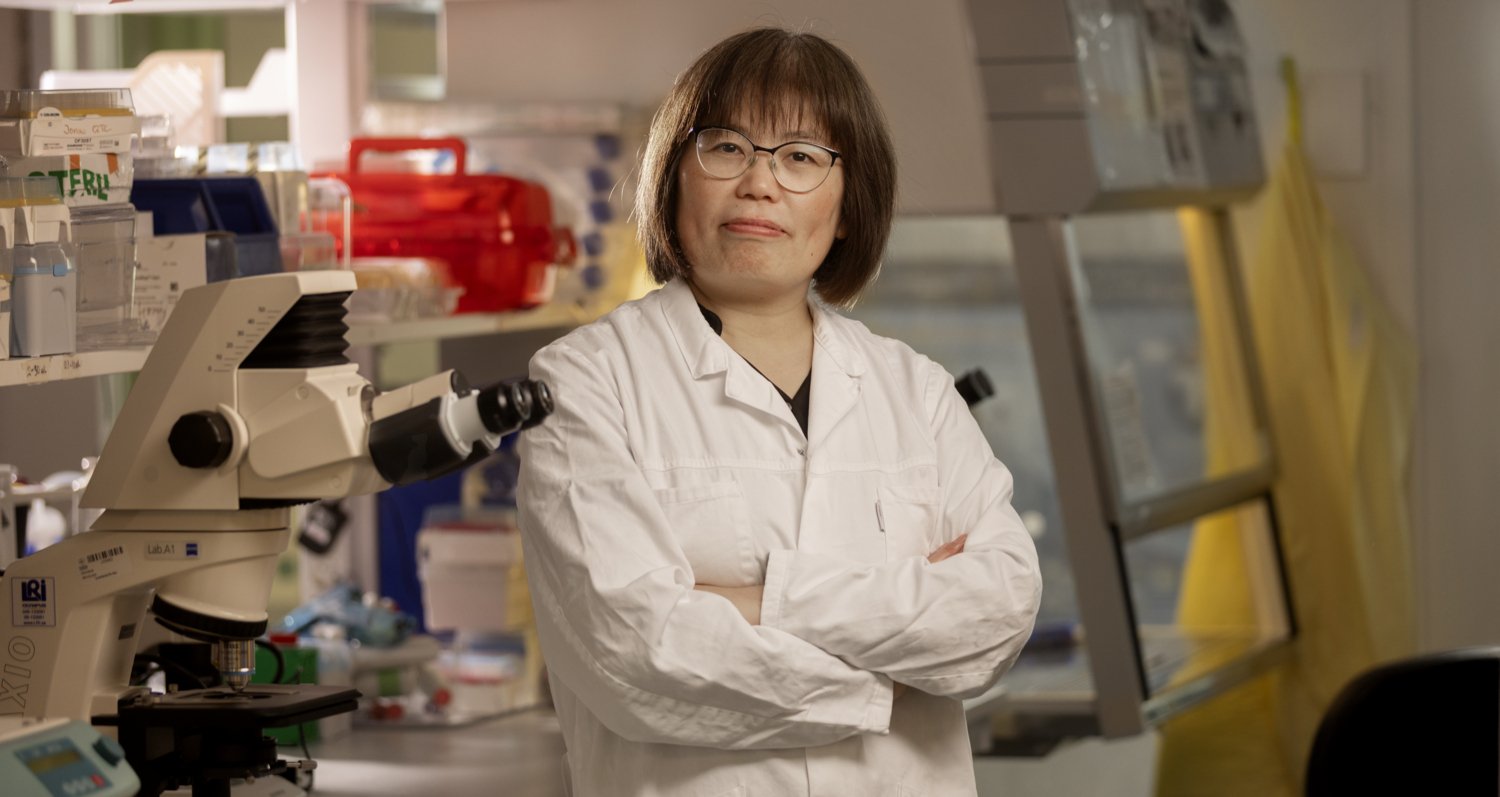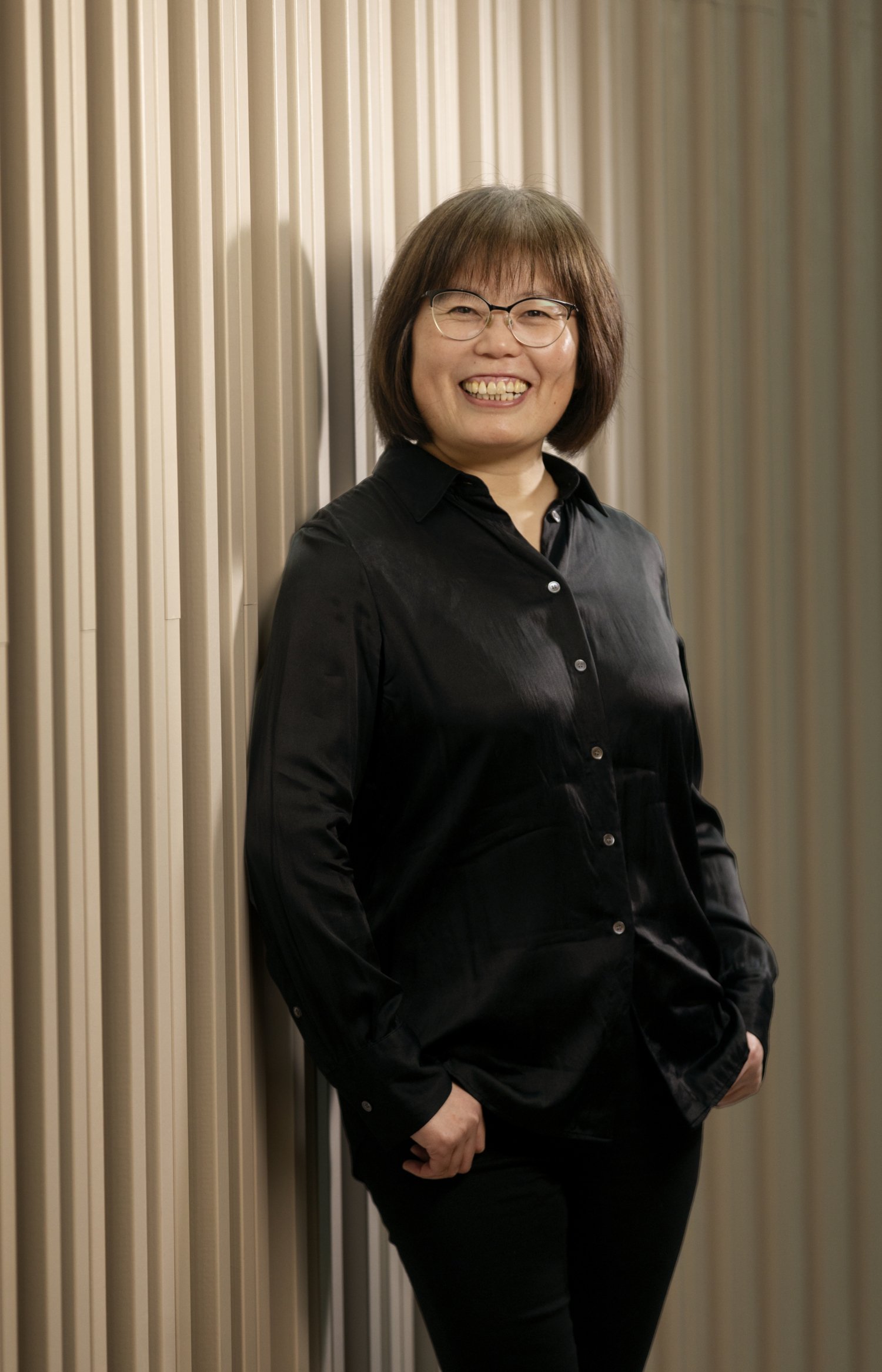Studying the microenvironment in which leukaemia cells grow

The greatest challenge facing current treatments of leukaemia is drug resistance. Hong Qian studies the microenvironment where the cancer cells are formed with the aim to find new treatment pathways. Meet one of the new professors of Karolinska Institutet who will participate in this year's installation ceremony at Aula Medica on 9 October.
Text: Karin Tideström, for KI’s installation ceremony booklet 2025
What are you researching?
“We want to understand how leukaemia develops and responds to treatment in the leukaemia niche, the microenvironment where leukaemia cells thrive and grow. The greatest challenge in the treatment of leukaemia is that the cancer cells develop a resistance to drugs. Previous studies have suggested that this drug resistance is due to the persistence of leukaemia-initiating stem cells that are protected by their niche in bone marrow and other tissues. Therefore, targeting the leukaemia niche may help to improve the efficacy of current treatments and offer new therapeutic opportunities. We’re currently focusing on two types of blood cancers: acute myeloid leukaemia (AML) and chronic myeloid leukaemia (CML).”

Why is understanding the leukaemia niche important?
“If we can identify the molecular pathways in the niche that protect the cancer-initiating stem cells, we’ll be able to develop new therapies that attack these mechanisms. Our goal is to eradicate the cancer stem cells and reduce the risk of relapse.”
How are you going about this?
“We’re characterizing the leukemia niche in bone marrow and other tissues from patients and animal models. With the help of advanced techniques including flow cytometry, RNA-sequencing and advanced microscopy we can find out the niche factors that are altered in leukaemia. After that, we aim towards targeting the factors for developing different therapies.”
What results have you seen to date?
“We’ve already identified several niche-related molecules that are dramatically altered in leukaemia and that affect the survival of the tumour cells. Our tests show that these molecules have great potential as future therapeutic targets. The next step is to study the molecules’ role in more detail so that we can eventually progress to clinical studies.”
About Hong Qian
Professor of Molecular Haematology at the Department of Medicine, Huddinge
Hong Qian was born in the Anhui Province of China in 1972. She took her Master’s degree in China in 2000 and after shortly working as a physiology teacher at Southeast University in Nanjing, China, she came to Sweden in 2003 with a strong desire to devote herself to research. After completing her PhD training in hematopoietic stem cell biology at Lund University she went on to Linköping University to undertake her postdoc training. Since 2012 she has worked at the Centre for Haematology and Regenerative Medicine (HERM) at Karolinska Institute. Hong Qian was appointed Professor at Karolinska Institutet on 26 November 2024.
